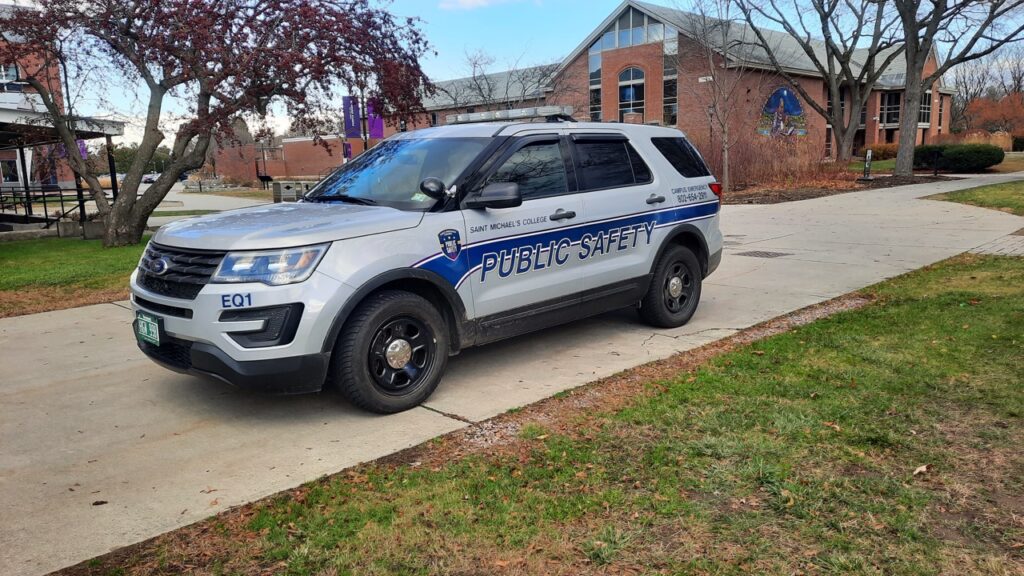
Julie Feliciano | Staff Writer | jfeliciano@mail.smcvt.edu
In a Halloween misstep, a townhouse party organized by four juniors became the center of controversy after a Public Safety officer issued incorrect fines.
The party, which followed official registration procedures, was interrupted when Public Safety cited the house for exceeding capacity.
Each of the party organizers initially faced a $500 fine for exceeding the townhouse’s 45-person limit. After appeals, the fine was reduced to $100 each.
This incident raised concerns about Public Safety’s approach to enforcing campus policies, as confirmed by Jeff Favreau, the director of Public Safety.
Townhouse resident Lawton Jones, ‘26, said, “I just see no way that we had over 45 people in that house. It was quite movable and comfortable compared to some parties I’ve been to.”
“We were pretty pissed because, while they fined us, the main thing they said was, thank you for being respectful.”
Jones said Public Safety officers were overly strict that night, shutting down other parties on campus, and telling students to leave an outdoor gathering.
“That was quite strange, and kinda seemed weird that they were just threatening everyone with fines when they weren’t doing anything wrong,” Jones said.
Jones also said the officer’s report on the incident was inaccurate and caused confusion. Favreau confirmed the Public Safety officer had made a mistake.
“The fines were issued that night by an officer who is no longer employed with us.
“The overcapacity issue was dealt with at a conduct hearing, and that’s all taken care of,” said Favreau.
“It is nice to hear that they’re kind of getting rid of people that are not really doing their job,” Jones said about the officer involved in the incident.
The initial $500 fines created a serious financial burden for the townhouse residents. According to Jones, it was their first issue with Public Safety, and the fine came without any prior warning.
“As college students, $500 is a massive amount, and some of my roommates simply can’t afford it,” Jones said. He added the fine would have not only made it harder to afford essentials like food but also discouraged them from seeking help from Public Safety in the future, fearing similar penalties.
“We don’t wanna go downtown, but these parties being shut down is, like, making us,” Jones said.

Jeff Vincent, the Director of Residence Life, said St. Michael’s College has a unique residential policy requiring almost all students to live on campus for all four years. This differs from schools like the University of Vermont (UVM), where only first-year students are required to live on campus.
“Because we’re 100% residential, that’s why we have students who are of age, who are 21, and so that’s where [the wet campus policy] has come out of,” Vincent said. This policy allows juniors and seniors in townhouses or apartments to consume alcohol if they are 21 or older, while dorms like Alumni Hall, which houses underclassmen, remain dry.
Vincent emphasized that the policy reflects the college’s effort to “meet students where they’re at” while maintaining clear guidelines. This setup has been in place “since the inception of the college” and includes a party registration process developed collaboratively with students and staff to ensure safety and responsibility.

